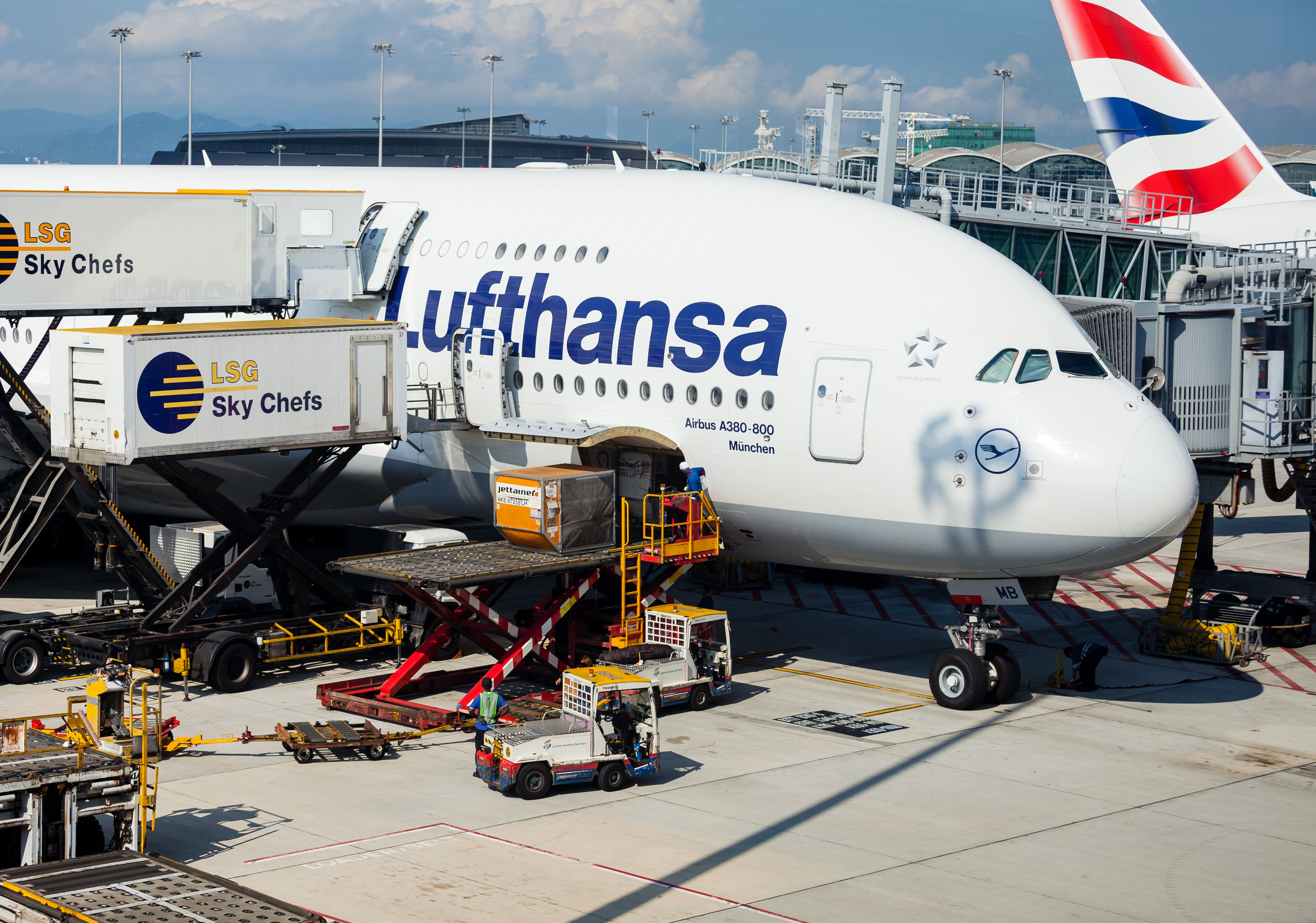Three Airbus A380 aircraft are destined to be scrapped and stripped for spare parts. The old superjumbo jets will support A380s currently in service with airlines by providing operators and maintenance teams with spare parts necessary to keep A380s airworthy and safe for passenger operations. The dismantling of the aircraft will be performed by VAS Aero Services, in partnership with Tarmac Aerosave.
Acquiring spare parts for the A380 has become increasingly important in the past several years. Despite many airlines opting to retire the quad-jet, delays with Boeing's 777x program mean airlines in need of high-capacity, long-haul jets need to hold on to their A380s for longer than anticipated. Though the A380's days are numbered, they still play an important role in today's commercial aviation industry.

Three A380s will be scrapped for spare parts According to VAS , the three aircraft will be dismantled with help from French company Tarmac Aerosave. VAS is an expert in aftermarket value for retired aircraft, and is a global leader in aftermarket services and aviation logistics. Meanwhile, Tarmac Aerosave has extensive experience in aircraft storage and recycling old aircraft parts.
The two teams will ensure these A380s are scrapped and that their useful parts are extracted for in-service A380s. According to airliners.de , two of the aircraft being scrapped formerly flew for Lufthansa, which still flies the type today.
During the onset of the pandemic, Lufthansa stored these aircraft in Spain while it waited for travel demand to recover. While many of the airline's A380s returned to service, D-AIME and D-AIMF were sold back to Airbus, which ultimately decided to scrap the jets. Luckily for Airbus, thanks to the delay of the Boeing 777x program, there is still a robust market for spare A380 parts.
As Chief Executive Officer of VAS Tommy Hughes explained: “This project with Airbus is further proof of VAS’s expertise in A380 platform dismantlement and USM parts harvesting and redistribution.Early on we identified the A380 platform as an aftermarket growth opportunity and we continue to aggressively invest in end-of-service A380 aircraft to make critical components available to the global jumbo-body aircraft operator market.” Delivery delays of the 777x have left a gap in the market The Airbus A380 is not a very attractive aircraft to acquire for most carriers anymore, as evidenced by Airbus' decision to shutter A380 production several years ago.
The aircraft is so big it is limited in which airports it is able to serve, and its four engines are undesirable compared to alternative twin-jets. However, many airlines are still holding on to them to compensate for delivery delays of its replacement. The Boeing 777x, which consists of both the 777-8 and 777-9 variants, is designed to replace the A380.
It boasts a large capacity, but leverages next-generation technology and more fuel-efficient engines to lower operating costs and environmental impact. Though it promised to bring major improvements to airline operations, it was originally scheduled to enter airline service in 2020. Five years later, and the aircraft still isn't ready for commercial deployment.
This is frustrating news for the airlines planning on modernizing their high-capacity fleet with the type. Now, they are keeping their A380s for longer so they can maintain their existing service levels on high-demand, long-haul routes. A complete list of 777x customers impacted by the delays is as follows: Airline Amount Ordered Emirates 205 Qatar Airways 94 Singapore Airlines 31 Lufthansa 27 Etihad Airways 25 Cathay Pacific Airlines 21 All Nippon Airways 20 Korean Air 20 British Airways 18 Air India 10 Cargolux 10 Ethiopian Airlines 8 Silk Way West Airlines 2 Unidentified Customers 12 The new 777X will have a broader wingspan than the 777, but folding wingtips when on the ground.
The A380 remains popular among carriers today Despite its declining popularity, the Airbus A380 remains a popular choice among global airlines. Famously, Emirates is the largest operator of the A380. The carrier has an impressive fleet of 119 A380 jets, and last year, the airline operated a whopping 57,531 flights with the aircraft type.
All the airline's A380s are based out of the carrier's hub at Dubai International Airport. Singapore Airlines trails Emirates significantly as the A380's second-largest operator. The airline has 12 A380 jets in its fleet, and last year, they operated 5,908 flights.
Following Singapore Airlines are British Airways, Qatar Airways and Qantas as the world's largest operators of the jet. With many airlines still operating robust A380 schedules, it makes sense that old A380 parts are still in high demand. Thus, VAS and Tarmac Aerosave will be able to help Airbus salvage the remaining value of the retired aircraft.
.
Technology

3 Airbus A380s To Be Scrapped For Spare Parts As Boeing 777X Delays Prolong Superjumbo Use

Demand for A380 parts remains strong as airlines extend their time in service.















